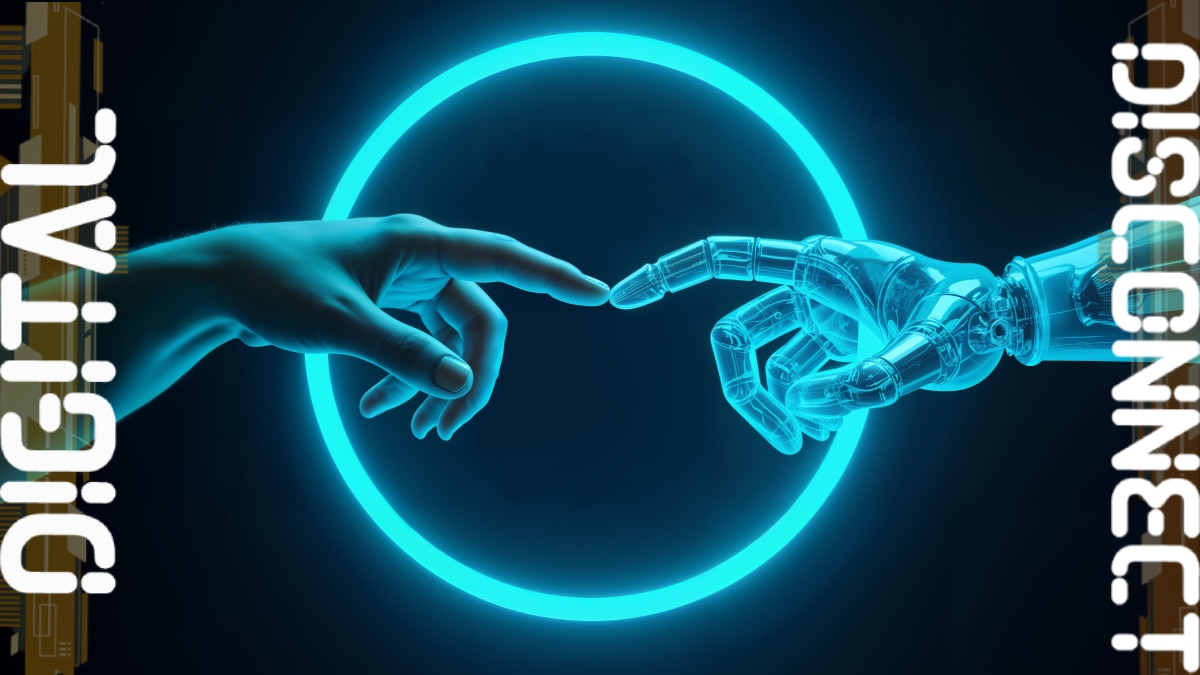Digital Disconnect: Let’s get one thing straight — AI ethics is a bit like gym membership terms and conditions. It sounds good, it’s technically enforceable, but when push comes to shove, no one actually follows it to the letter. And much like that unused treadmill, AI ethics often gathers dust while the real world races ahead.
But don’t worry, the world’s best minds have got us covered. Right? Governments, tech giants, and regulatory bodies have drafted a buffet of AI ethical guidelines, hoping to rein in artificial intelligence before it starts making executive decisions about our lives. The problem? AI doesn’t care about rules.

And, let’s be honest, neither do the people making billions off it. AI’s Rulebook: A Look at the Good Intentions Here’s a rapid-fire summary of some key AI ethics policies that look great on paper: EU AI Act (2024) – The European Union went full parental mode on AI, banning social scoring, emotion recognition at work and school ( because Big Brother vibes ), and slapping hefty fines on companies violating high-risk AI guidelines. Sounds strict? Sure.
But enforcement remains a giant question mark. UNESCO AI Ethics Framework – A rare moment where 193 countries agreed on something. This one emphasizes transparency, fairness, and making AI more accessible to developing nations.
The catch? It’s recommendations , not law. AI companies can — and often do — shrug it off. White House AI Bill of Rights (2022) – The US tried.
This document insists AI should be safe, unbiased, and accountable. People should know when AI is used in decision-making. Does this stop banks from using biased AI models? Or law enforcement from using facial recognition tech in, let’s say, questionable ways? Not quite.
China’s AI Regulations – The state with the world’s most sophisticated AI surveillance network has its own rules, ensuring AI follows government-approved narratives. Irony? Not lost. Big Tech’s Ethics Policies (Google, OpenAI, Microsoft, etc.
) – These companies swear by ethical AI. No biased models, no military applications, no evil overlord ambitions ( yet ). And then they release AI tools that — oops! — hallucinate fake information, automate job losses, or quietly absorb all human-generated content for “training purposes.
” The Big Loophole: Ethics Without Teeth The biggest flaw in AI ethics? It’s all bark, no bite. There are guidelines, but minimal enforcement. Big Tech lobbies against strict laws, governments use AI for their own agendas, and smaller players just.
.. ignore the rules altogether.
"Bias-Free AI" Is a Myth – AI models are trained on human data, and guess what? Humans are biased. No amount of ethical paperwork can magically make AI neutral. Regulations Are Always a Step Behind – By the time laws are written, AI has already evolved into something new.
Fines Don’t Scare Billion-Dollar Companies – A $100 million fine for a trillion-dollar company? That’s a rounding error, not a deterrent. What’s Next? AI Ethics or AI Chaos? Regulations will get stricter. Tech companies will get better at sounding ethical while pushing boundaries.
AI will keep getting smarter, and governments will scramble to keep up. So, what’s the solution? Transparency, stronger enforcement, and a lot more "Wait, should we actually do this?" moments from AI developers before unleashing the next big thing. Until then, we’re all just hoping our AI overlords develop a sense of humour before they develop autonomy.
Digital Disconnect is an ABP Live-exclusive column, where we explore the many admirable advancements the world of tech is seeing each day, and how they lead to a certain disconnect among users. Is the modern world an easier place to live in, thanks to tech? Definitely. Does that mean we don’t long for things to go back to the good-ol’ days? Well, look out for our next column to find out.
Also read Spirited Away? ChatGPT Seems To Be Spotting 'Ghosts' (& Babies) In Ghibli Photos As Ghibli Goes AI Due To ChatGPT, Hayao Miyazaki Would Like To Unsubscribe.
Digital Disconnect — The AI Ethics Playbook: Rules, Loopholes, & The Fine Print No One Reads

Digital Disconnect: Let’s get one thing straight — AI ethics is a bit like gym membership terms and conditions. It sounds good, it’s technically enforceable, but when push comes to shove, no one actually follows it to the letter. And much like that unused treadmill, AI ethics often gathers dust while the real world races ahead.But don’t worry, the world’s best minds have got us covered. Right? Governments, tech giants, and regulatory bodies have drafted a buffet of AI ethical guidelines, hoping to rein in artificial intelligence before it starts making executive decisions about our lives. The problem? AI doesn’t care about rules. And, let’s be honest, neither do the people making billions off it.AI’s Rulebook: A Look at the Good IntentionsHere’s a rapid-fire summary of some key AI ethics policies that look great on paper:EU AI Act (2024) – The European Union went full parental mode on AI, banning social scoring, emotion recognition at work and school (because Big Brother vibes), and slapping hefty fines on companies violating high-risk AI guidelines. Sounds strict? Sure. But enforcement remains a giant question mark.UNESCO AI Ethics Framework– A rare moment where 193 countries agreed on something. This one emphasizes transparency, fairness, and making AI more accessible to developing nations. The catch? It’s recommendations, not law. AI companies can — and often do — shrug it off.White House AI Bill of Rights (2022) – The US tried. This document insists AI should be safe, unbiased, and accountable. People should know when AI is used in decision-making. Does this stop banks from using biased AI models? Or law enforcement from using facial recognition tech in, let’s say, questionable ways? Not quite.China’s AI Regulations – The state with the world’s most sophisticated AI surveillance network has its own rules, ensuring AI follows government-approved narratives. Irony? Not lost.Big Tech’s Ethics Policies (Google, OpenAI, Microsoft, etc.) – These companies swear by ethical AI. No biased models, no military applications, no evil overlord ambitions (yet). And then they release AI tools that — oops! — hallucinate fake information, automate job losses, or quietly absorb all human-generated content for “training purposes.”The Big Loophole: Ethics Without TeethThe biggest flaw in AI ethics? It’s all bark, no bite. There are guidelines, but minimal enforcement. Big Tech lobbies against strict laws, governments use AI for their own agendas, and smaller players just… ignore the rules altogether."Bias-Free AI" Is a Myth – AI models are trained on human data, and guess what? Humans are biased. No amount of ethical paperwork can magically make AI neutral.Regulations Are Always a Step Behind – By the time laws are written, AI has already evolved into something new.Fines Don’t Scare Billion-Dollar Companies – A $100 million fine for a trillion-dollar company? That’s a rounding error, not a deterrent.What’s Next? AI Ethics or AI Chaos?Regulations will get stricter. Tech companies will get better at sounding ethical while pushing boundaries. AI will keep getting smarter, and governments will scramble to keep up.So, what’s the solution? Transparency, stronger enforcement, and a lot more "Wait, should we actually do this?" moments from AI developers before unleashing the next big thing.Until then, we’re all just hoping our AI overlords develop a sense of humour before they develop autonomy.Digital Disconnect is an ABP Live-exclusive column, where we explore the many admirable advancements the world of tech is seeing each day, and how they lead to a certain disconnect among users. Is the modern world an easier place to live in, thanks to tech? Definitely. Does that mean we don’t long for things to go back to the good-ol’ days? Well, look out for our next column to find out.















